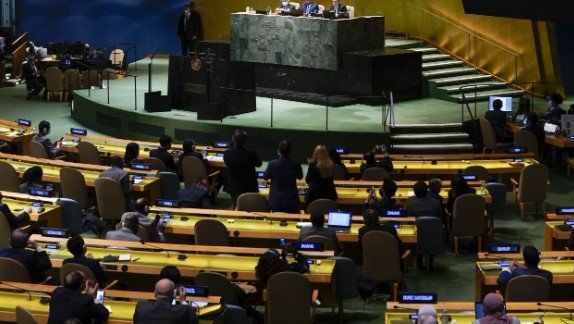In a nuanced turn of events at the United Nations, China’s abstention from a resolution on the status of displaced persons in Georgia’s contested regions has been interpreted as a gesture of support. This diplomatic subtlety underscores the complex interplay of international relations and the strategic silence that speaks volumes.
The Diplomatic Dance
The chairman of the Georgian parliament, Shalva Papuashvili, has articulated a unique perspective on China’s abstention, equating it to an act of support. This stance reflects a broader understanding of the diplomatic ties between Georgia and China, highlighting the strategic partnership that transcends conventional expressions of alliance.

China’s abstention is not an isolated incident but part of a consistent pattern observed over the years. It reveals a deliberate choice to refrain from direct involvement while simultaneously signaling a tacit endorsement of Georgia’s sovereignty and territorial integrity. This approach aligns with China’s own principles regarding its territorial integrity and offers insight into its foreign policy maneuvers.
Strategic Partnerships and Global Agendas
The relationship between Georgia and China extends beyond this single resolution. It encompasses a strategic partnership that operates both bilaterally and within multilateral frameworks. The two nations share a commitment to the inviolability of territorial integrity, a principle that is deeply embedded in their international dealings.
Georgia’s diplomatic strategy aims to garner increasing support within the international community, a goal that is gradually being realized as evidenced by the growing number of countries backing their resolutions. China’s abstention, therefore, is not merely a passive act but a calculated move within the intricate chessboard of global politics.
The Echo of Abstention
As the world grapples with the complexities of international law and the sovereignty of nations, China’s abstention serves as a reminder of the power of silence in diplomacy. It is a strategic echo that resonates with support, an abstention that speaks as loudly as a vote, shaping the contours of international relations in subtle yet significant ways.
The interpretation of China’s abstention as support by Georgian officials is a testament to the nuanced understanding of diplomatic communications. It is a dance of politics where every move, every pause, and every silence is imbued with meaning, crafting the narrative of international alliances and oppositions.
